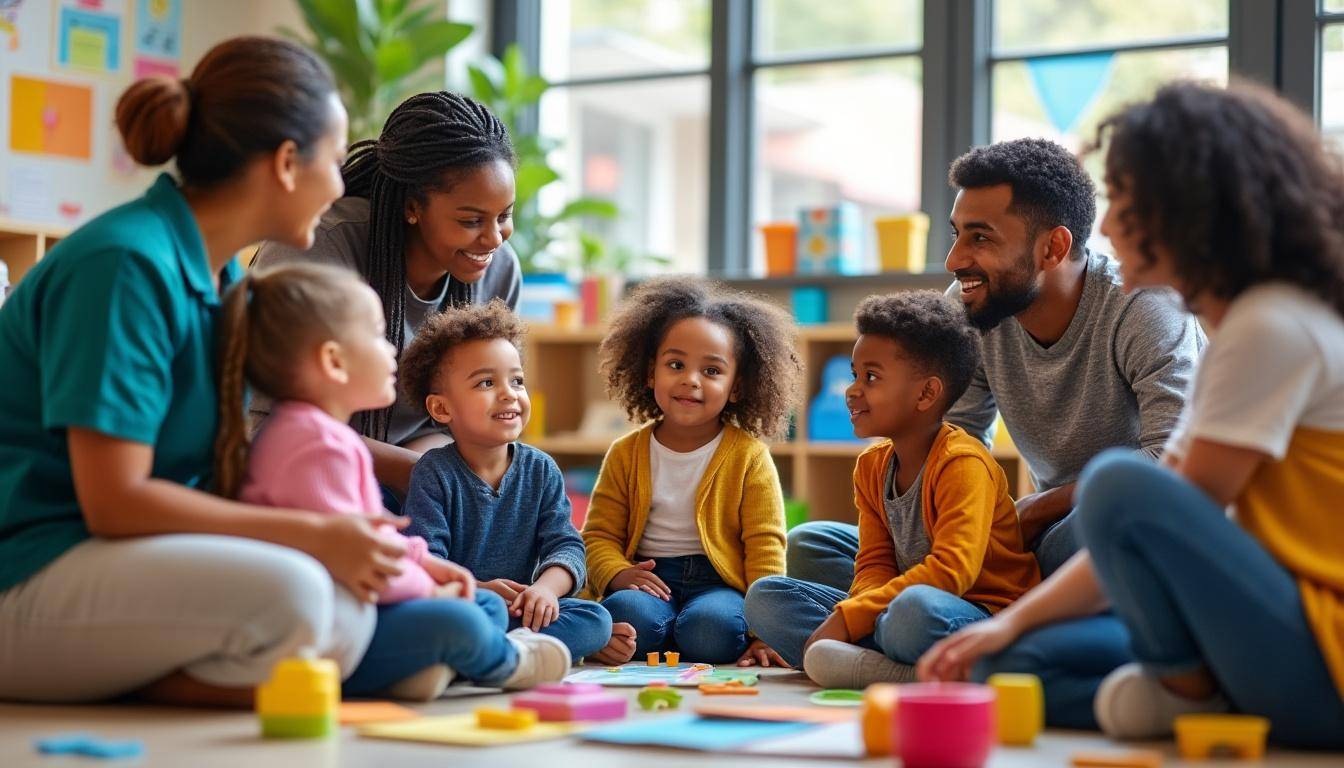Engaging young children in conversations about race is a crucial but often overlooked element of early education. Emerging insights from Kidsburgh and the Early Learning Resource Center Region 5 emphasize the importance of addressing race openly with children to foster positive racial identity and resilience. While many caregivers may feel hesitant or unsure about how to approach this topic, developing proactive and reflective strategies can ensure children grow with a healthy understanding of diversity, equity, and inclusion from an early age.
Why Talking About Race Early Benefits Children’s Development
Contrary to the misconception that young children are too young to discuss race, researchers and educators highlight that children start noticing racial differences well before they can verbalize questions. Kidsburgh’s guide on talking with kids about race stresses that avoiding these conversations can actually harm children’s understanding of themselves and others.
- Children receive racialized messages early: Even infants observe skin color differences and social cues around them.
- Positive racial identity supports self-esteem: As noted by Medina Jackson, director of the University of Pittsburgh’s P.R.I.D.E. Program, children who feel confident in their racial identity demonstrate better academic outcomes and resilience.
- Proactive conversations build empathy: Early conversations about race teach kindness and respect toward classmates from diverse backgrounds.
Recognizing children’s racial experiences, schools and caregivers can integrate resources from organizations such as the National Association for the Education of Young Children (NAEYC) and Sesame Workshop to promote diversity awareness in age-appropriate ways. These efforts align closely with recommendations from Race Forward and Teaching Tolerance, who advocate for ongoing discussions rather than isolated talks.
How Caregivers Can Approach Conversations About Race Effectively
Medina Jackson offers a three-pronged strategy for caregivers aiming to engage children in conversations about race thoughtfully and confidently:
- Be Proactive: Introduce topics about race, culture, and identity before children encounter biased messages.
- Be Responsive: Answer children’s questions honestly and with sensitivity when they naturally arise.
- Be Reflective: Encourage children to think about their own feelings and experiences around race and diversity.
Jackson’s work is supported by educational resources available through Early Learning Resource Center Region 5, which offers materials tailored for various developmental stages. Utilizing diverse books and media from sources like PBS Kids and Child Mind Institute can also help in normalizing racial conversations within everyday contexts.
Creating an Inclusive Environment That Supports Racial Learning
Beyond individual conversations, fostering a nurturing environment where diverse backgrounds are valued influences children’s racial identity development positively. Institutions like The Aspen Institute promote culturally sustaining pedagogy to help educators and parents embed equity into learning settings systematically.
- Curate diverse books and materials: Integrate stories that represent various ethnicities and cultures to broaden children’s perspectives.
- Model respectful language and behavior: Caregivers should demonstrate inclusive communication that values differences.
- Engage in community dialogues: Encourage participation in programs and forums that discuss race and diversity openly.
Resources such as the Kidsburgh platform and the Early Learning Resource Center provide avenues to connect with other caregivers and educators dedicated to continuous learning on these topics. This community support is vital given the challenges some families face, illustrated by current debates on educational content and parental rights in schools (learn more).
Tools and Resources to Empower Caregivers and Educators
A variety of organizations offer curated materials to support caregivers in initiating meaningful conversations about race:
- Diverse Books: Collections specifically designed to teach children about racial and cultural diversity.
- Teaching Tolerance: Lesson plans and action guides built for educators to integrate into classrooms.
- Sesame Workshop and PBS Kids: Educational programming that introduces concepts of fairness and inclusion.
- Child Mind Institute: Guidance on handling complex emotions children may experience around discussions on race.
- National Association for the Education of Young Children (NAEYC): Standards and practices for equitable early childhood education.
Additionally, caregivers interested in policy trends and parental rights in education can find valuable insights related to LGBTQ and racial topics on Education to the Top, offering a broader context of how societal dialogues impact classroom dynamics and family choices.


